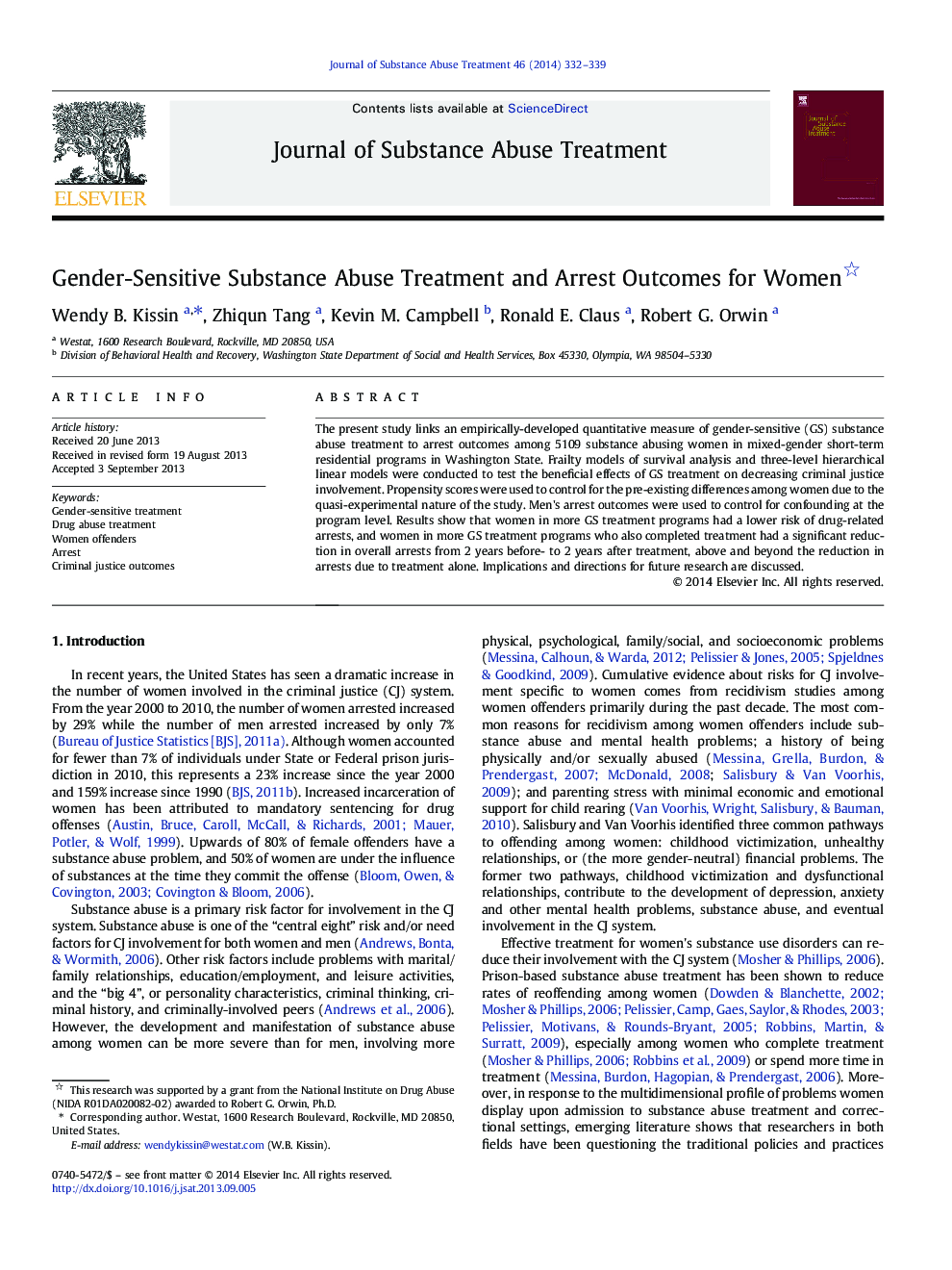| Article ID | Journal | Published Year | Pages | File Type |
|---|---|---|---|---|
| 10303078 | Journal of Substance Abuse Treatment | 2014 | 8 Pages |
Abstract
The present study links an empirically-developed quantitative measure of gender-sensitive (GS) substance abuse treatment to arrest outcomes among 5109 substance abusing women in mixed-gender short-term residential programs in Washington State. Frailty models of survival analysis and three-level hierarchical linear models were conducted to test the beneficial effects of GS treatment on decreasing criminal justice involvement. Propensity scores were used to control for the pre-existing differences among women due to the quasi-experimental nature of the study. Men's arrest outcomes were used to control for confounding at the program level. Results show that women in more GS treatment programs had a lower risk of drug-related arrests, and women in more GS treatment programs who also completed treatment had a significant reduction in overall arrests from 2Â years before- to 2Â years after treatment, above and beyond the reduction in arrests due to treatment alone. Implications and directions for future research are discussed.
Related Topics
Life Sciences
Neuroscience
Biological Psychiatry
Authors
Wendy B. Kissin, Zhiqun Tang, Kevin M. Campbell, Ronald E. Claus, Robert G. Orwin,
